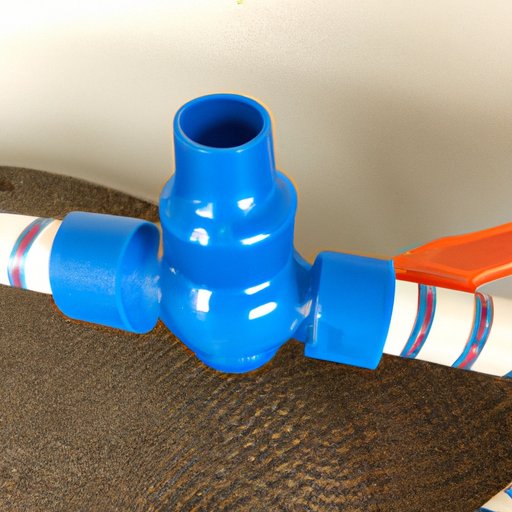Introduction
Water is commonly referred to as the “universal solvent” because it is capable of dissolving a wide variety of substances. This property has important implications across numerous fields, from environmental conservation to medicine. Understanding why water is a universal solvent is critical to understanding its significance in our lives.
Scientific Explanation
The key to understanding water as a universal solvent lies in its molecular structure. A water molecule is made up of two hydrogen atoms and one oxygen atom, arranged in a V-shape. This gives the molecule a polarity, meaning it has both a positive and negative end.
Because of this, water molecules are able to easily interact with other molecules that have a slight electrical charge. For example, salt ions are attracted to the partially negative oxygen end of water molecules, allowing them to dissolve in water.
This property is also what makes water an excellent solvent for polar substances like sugars, acids, and alcohols. These substances can easily interact with the oppositely charged ends of water molecules, causing them to dissolve fully or partially.
Historical Significance
Water has had a significant historical impact as a solvent, being used for everything from washing clothes to extracting metals through alchemical processes. Perhaps the most notable example of the latter is the philosopher’s stone, an object that was said to be capable of transmuting base metals into gold or silver. The pursuit of the philosopher’s stone drove much of the scientific research in Europe during the 16th and 17th centuries.
Water has also played a critical role in human civilization as a solvent for cooking and preserving food, as well as for drinking and hygiene. In ancient Rome, for example, aqueducts and public baths were crucial for the daily lives of citizens.
Environmental Implications
One of the most significant environmental implications of water as a universal solvent is its ability to dissolve pollutants. Unfortunately, this often means that harmful substances can leach into water supplies, posing risks to both human health and ecosystems. Pesticides, fertilizers, and heavy metals are just a few examples of substances that can be detrimental to life when dissolved in water.
On the other end of the spectrum, dissolved substances in water can also have positive environmental impacts. For example, ocean currents are responsible for moving dissolved nutrients around the ocean, promoting the growth of phytoplankton and other organisms that form the basis of marine food chains. Understanding the complex interactions between dissolved substances and their effects on ecosystems is critical to conservation efforts.
Practical Applications
Water’s ability to dissolve a wide range of substances makes it a valuable solvent across many fields. In industry, water is used as a solvent for many manufacturing processes, from cleaning products to metalworking. In medicine, water is used as a solvent for injectable drugs and for preparing IV solutions. As a cooking solvent, water is used to extract flavors from spices and herbs, and to dissolve sugars in baking.
Everyday Relevance
Understanding water as a solvent has everyday relevance as well. Water is often used as a solvent for cleaning tasks, as it is capable of dissolving many common substances like dirt and grease. It is also an important solvent for personal hygiene, such as washing our hands and bodies to remove unwanted substances.
Whether we realize it or not, our interactions with water as a solvent are often critical to our daily lives. We should therefore prioritize understanding water’s properties and how they allow it to act as a universal solvent.
Conclusion
Water’s status as a universal solvent makes it a critical component of numerous aspects of our lives, from industry to the environment. Understanding how water interacts with other substances and its historical and practical significance can help us maximize its benefits while reducing its negative impacts.
As individuals, we should take the time to educate ourselves on water as a universal solvent and the implications of its properties. This may include adjusting our own behavior to conserve water and reduce pollution, advocating for more sustainable policies, and supporting research into safer, more efficient solvents.
